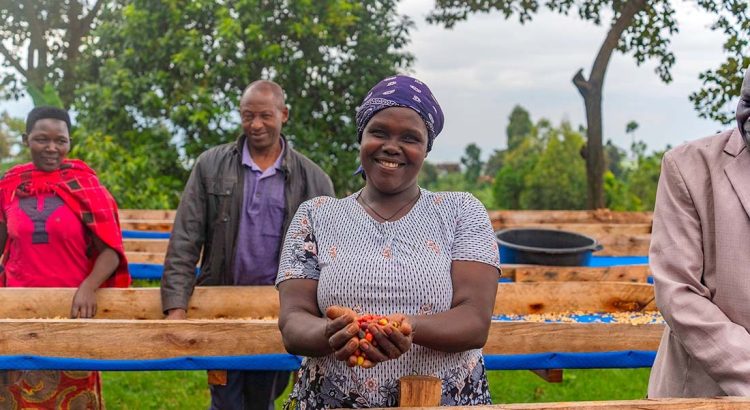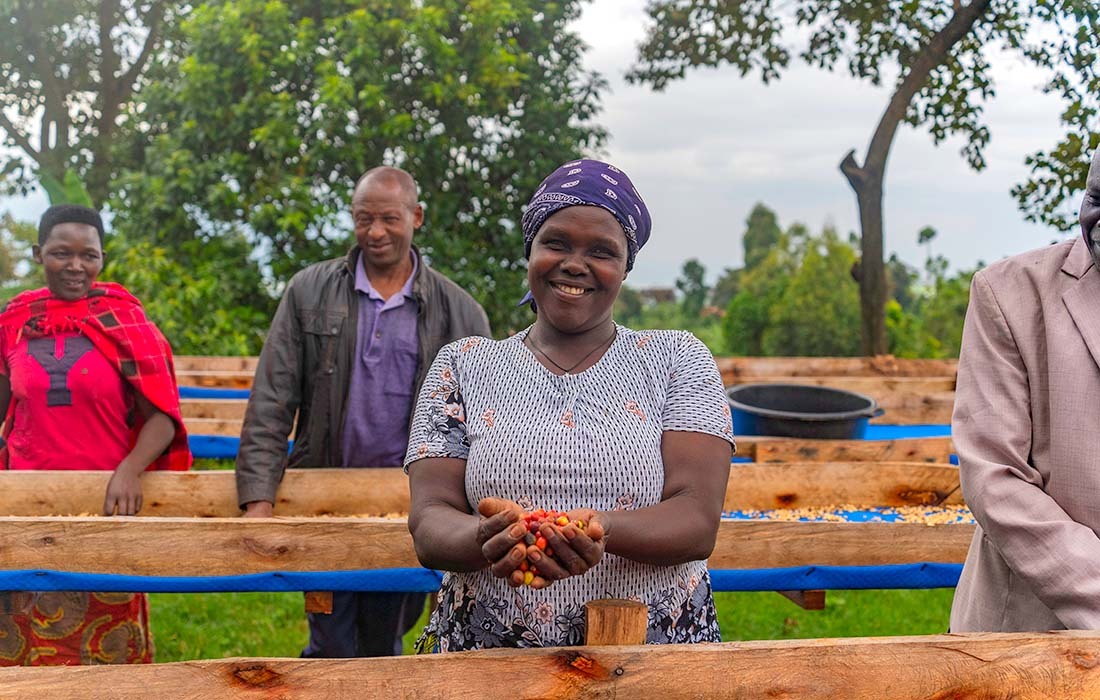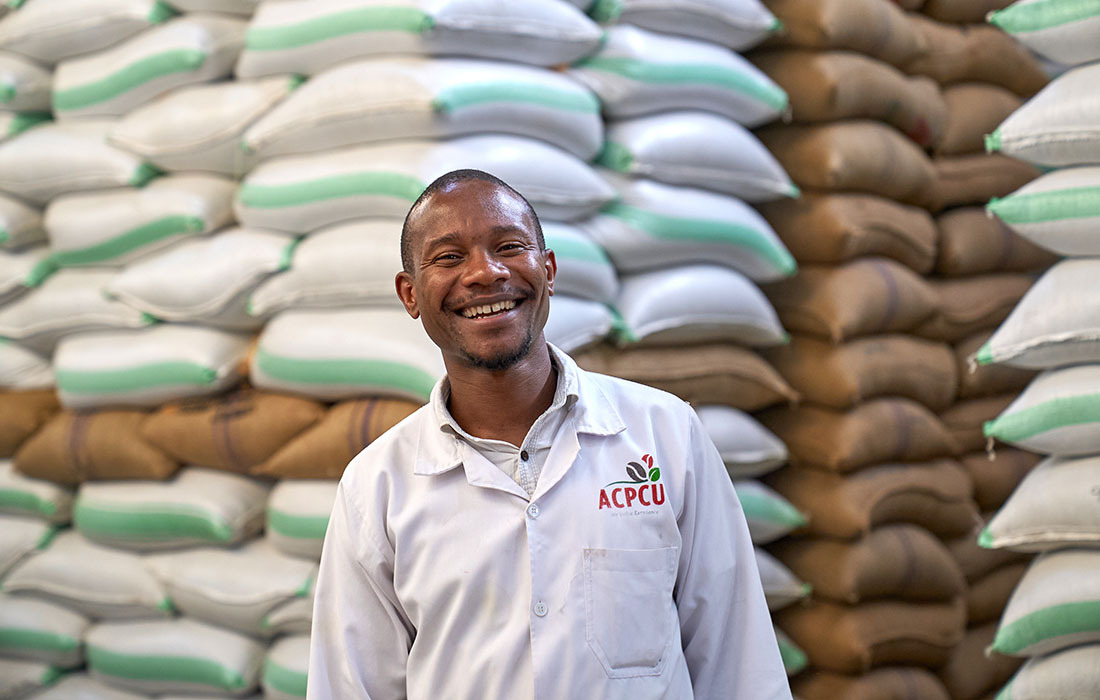The country has set its sights on becoming the cup of choice for UK coffee connoisseurs
Ugandan Coffee is making its first showcase at the Manchester Coffee Festival (14-16th November), one of UK’s biggest hot beverage events, as part of its ongoing campaign to encourage British coffee aficionados to choose the delicious beans grown on the fertile soil of Uganda, for their next cup.
This marks the Ugandan specialty coffee producers’ first appearance at the North West’s biggest coffee event, where it hopes to secure new listings with retailers and hospitality venues in the North of England. Known as the “Pearl of Africa,” Uganda offers one of the finest topographies in the world for growing quality coffee beans. From the fertile volcanic slopes of Mount Elgon in the east to the Rwenzori Mountains in the west, each region boasts unique growing conditions and flavours.
Last year Ugandan Coffee broke its export record and has now set its sights on increasing this figure whilst securing the cups of more British coffee drinkers; it currently accounts for a mere 1% of the UK’s total coffee imports. After fostering strong connections at the London Coffee Festival earlier this year, the group is looking to deepen its engagement with the UK market by joining the Manchester Coffee Festival.
The coffee grown on its soil has an exquisite, distinct taste, and the country has been harvesting the beans for over 200 years. Robusta coffee beans first started growing in the wild forests bordering Lake Victoria over two hundred years ago, and by the late 19th century, Ugandan Robusta was finding its way into European markets.
Today, coffee is a vital part of Uganda’s economy, employing over 1.7 million households and contributing significantly to foreign exchange earnings. Uganda is the 7th largest coffee producer globally.
However, until recently, a cup of Ugandan coffee has been hard to find on UK soil, with the coffee market dominated by imports from Brazil, Colombia, Ethiopia, and Vietnam. According to the British Coffee Association, coffee consumption in the UK is among the highest in the world, with an average of 2.3 cups per person per day, yet Ugandan coffee accounts for just 1% of British coffee imports.
Backed by a campaign from the UK Trade Partnerships Programme, it wants to encourage British coffee drinkers to seek out a cup of Ugandan coffee for their next caffeine fix. Through targeted support in marketing, branding, quality testing, and sustainability, the programme has strengthened the capacity of Uganda’s specialty coffee producers. It has also fostered collaboration, enabling producers to consolidate shipments and streamline access to UK and EU markets. This momentum coincides with the launch of a new direct flight route between the UK and Uganda that started on the 18th May; a welcome development that further supports growing trade and connectivity between the two countries. As a result, the UK has received a curated selection of Uganda’s coffee gems – all of which will be proudly showcased during the Manchester Coffee Festival (14-16 November).
It hopes to raise awareness about the new generation of Ugandan coffee producers who are championing sustainable farming, empowering women, and transforming local communities – while offering UK consumers the chance to discover an exciting and often-overlooked origin.
These include growers who are dedicated to driving community uplift including support for local schools, financial education and youth programmes. Their practices are steeped in sustainability from bean to cup, with agroforestry, climate-smart agriculture and initiatives such as shade-planting and beekeeping in place. Not to mention many farms have a female-led workforce, who they upskill with technical training and fair wages.
For example, Mountain Harvest, set on the ridges of Mount Elgon, is dedicated to empowering women through coffee production and has grown the number of women it works with from 13% in 2019 to 41% in 2025.
Whilst Ankole Cooperative Union, located in the fertile volcanic soils of Southwestern Uganda, at altitudes ranging from 1400 to 1900 metres above sea level, is committed to developing local communities and has helped fund schools in the villages they work with. Its member farmers each manage small-scale farms averaging 1.5 acres, carefully tending to 600-700 coffee trees. Their farming practices include maintaining healthy soils, pruning the coffee bushes, and intercropping with nutrient-rich trees and plants such as bananas, providing partial shade and mulch for the soil. With their high altitude these farms produce coffee that exhibits a distinctive cup profile with floral, fruity, and sweet notes.
Zamani Coffee was founded as a movement to empower small-scale farmers. Its beans are cultivated by 250 dedicated small-scale farmers in the Sipi region, who weave traditional methods with innovation to nurture the land that sustains them. Zamani provides ongoing education on sustainable farming and post-harvest practises to help achieve higher profitability whilst looking after their environment. It established the ‘Sipi Zamani Coffee Farmers Savings Cooperative’, a platform that empowers farmers to save, plan and deliver community-driven initiatives.
With pioneering growers committed to sustainability, empowerment, a female-led workforce, and the finest tasting beans, Ugandan Coffee hopes to make its mark with British coffee connoisseurs with a conscience in 2025 and beyond.
Where to find Ugandan Coffee
Ugandan coffee is currently being imported by specialist coffee traders including the following who supply to roasters across the UK .
Ugandan Coffee Beans to Try
| ROBUSTA | ||
| PRODUCER | COFFEE TYPE | TASTING NOTES |
| MWANYI TERIMBA | NATURAL UGANDA ROBUSTA | Fruity, Spicy, Caramel, Chocolate |
| BRAND COFFEE FARM | WASHED UGANDA ROBUSTA | Good fragrance and Aroma, Cup flavour is very good with a smooth mouth feel and lingering after taste |
| THE EDGE COFFEE | NATURAL UGANDA ROBUSTA | Mild sweet Finish, Mild floral, roasted cocoa notes, dark chocolates with a smooth body. A balanced salt to acid ratio. |
| DREAM COFFEE | NATURAL UGANDA ROBUSTA | Smokey Nutty Notes |
| CLARKE FARM COFFEE | WASHED UGANDA ROBUSTA | Good Aroma, Medium Body, lemon after taste, Clean cup. Fragrance is nutty and fruity |
| ARABICA | ||
| KWEZI COFFEE | NATURAL UGANDA ARABICA | Cherry, red stone fruit, chocolate, light ferment in finish, light citrus notes |
| CARICO | WASHED UGANDA ARABICA | Crisp apple, lemon grass herbals, generic tropical, cane sugar finish |
| KYAGALANYI COFFEE | NATURAL UGANDA ARABICA | winey, fruity, berries, chocolate, sweet, medium acidity, heavy body, caramel, malt-like |
| ANKOLE COFFEE | NATURAL UGANDA ARABICA | Generic red fruit, chocolate |
| CARICO | WASHED UGANDA ARABICA (PeaBerry) | Vanilla, Floral, dry fruits, chocolate, dry fruits, molasses |
| ZAMANI COFFEE | WASHED & NATURAL UGANDA ARABICA | Balanced and bright flavour with hints of tamarind, orange, and chocolate with a lemon-like acidity and a bright finish. |


